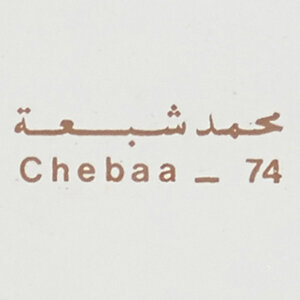Past Disquiet
Last updated on Fri 20 February, 2015


Past Disquiet
Narratives and Ghosts from The International Art Exhibition for Palestine, 1978
February 20th, 2015 to June 1st, 2015
The history of contemporary art cannot be written exclusively through the analysis of artworks. One key historiographic discipline investigates and narrates how artworks have been taken into the sphere of public space as the space of reception. The history of exhibitions allows us to understand the role that today’s artistic production gives art within the broader context of political, media, economic, and cultural conditions, or, in other words, how the values that art bestows on life are created and shared.
Aside from the more famous exhibitions held at big museums in the major cities in the West, the second half of the twentieth century also saw a flourishing of exhibitions of great significance and relevance outside the framework of museums and institutions. In many cases, the desire to create new forms of institutionality resulted in these initiatives falling into obscurity or to their physical or mnemonic destruction. This is an attempt to initiate a reading of another history of art, one that gathers up the yearnings and hopes of many people, from the perspective of a recent past that should not continue to be left out of the historical narratives of art.
Past Disquiet is an archival and documentary exhibition that excavates the history of and around The International Art Exhibition for Palestine (Beirut, 1978). It proposes a speculative history of politically engaged artistic and museographic practices in the milieu of the international anti-imperialist solidarity movement of the 1970s.
The International Art Exhibition for Palestine was inaugurated in Beirut (Lebanon), in March 1978, and was intended as the seed collection for a museum in exile. Inspired from The International Resistance Museum for Salvador Allende, the museum took the form of an itinerant exhibition that was meant to tour until it could repatriate to Palestine. Organized by the Palestine Liberation Organization (PLO), comprising almost 200 works, donated by 200 artists from nearly 30 countries, the exhibition remains one of the most ambitious, in scale and scope, to have ever been showcased in the Arab world until this day. Tragically, during the Israeli siege of Beirut in 1982, sustained heavy shelling destroyed the building where the works were stored as well as the exhibition’s archival and documentary traces.
The research to reconstruct its narrative and traces began with a copy of the exhibition catalogue that lists contributing artists and acknowledges people and institutions whose support made it possible. Past Disquiet weaves testimonies and recollections – narratives subjected to the trappings of memory – with documents found in private and institutional archives to incarnate a forgotten yet very recent history. The outcome of the research reveals a universe of networks between artists and activists, welded by solidarity and political affinities, as well as artist-run associations and collectives that produced interventions in public spaces, exhibitions, biennials and museums (conceived as itinerant exhibitions) incarnating the commitment to a political cause and superseding the art market to embody independent [sovereign] counter-cultural representations of ideals.
In recording memories of artists, critics and cultural organizers, Past Disquiet draws unsuspected cartographies across time and geography, where the stories of The International Resistance Museum for Salvador Allende, the Artists of the World Against Apartheid, Art for the People of Nicaragua, the Salon de la Jeune Peinture, the International Brigades of Anti-Fascist Painters, the Japan Afro-Asian Latin American Artists Association and the 1974 and 1976 Arab Biennials intersect with The International Art Exhibition for Palestine.
Curators: Rasha Salti and Kristine Khouri
The research for this project has been made possible by the generous support of:<br> Rana Sadik and Samer Younis, The Arab Fund for Arts and Culture (AFAC), A.M. Qattan Foundation and ZedGrant.







